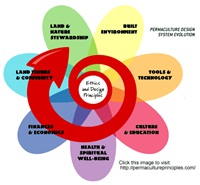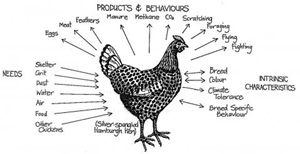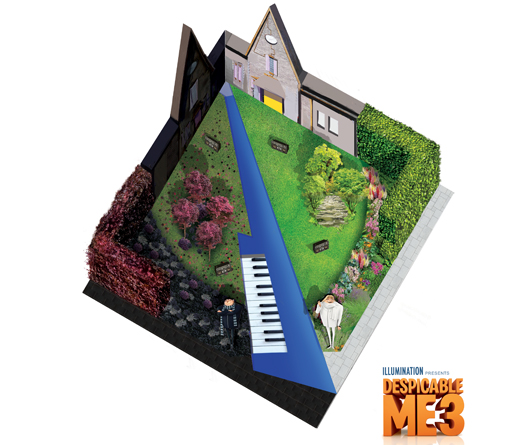
Permaculture is:
- an innovative design framework for creating sustainable ways of living
- a practical method based on observation, experience and science, for developing ecologically harmonious, efficient and productive systems that can be used by anyone, anywhere

It can be applied practically to the design and management of landscapes such as gardens and farms, building design, the planning of settlements, complimentary financial systems, transition towns and the organisation of business.
Permaculture is:
- an approach to designing human settlements and agricultural systems that are modeled on the relationships found in natural ecologies
- sustainable land use design.
This is based on ecological and biological principles, often using patterns that occur in nature to maximise effect while minimizing wasted energy.
Permaculture aims to create stable, productive systems that provide for human needs, harmoniously integrating the land with its inhabitants. The ecological processes of plants, animals, their nutrient cycles and climatic factors are all part of the picture.
Peoples’ needs are provided for using proven technologies for food, energy, shelter and infrastructure.
Elements in a system are viewed in relationship to each other, where the outputs of one element become the inputs of another.
Within a Permaculture system:
- work is minimised
- “wastes” become resources
- productivity and yields increase
- and environments are restored.

Permaculture principles can be applied to any environment, at any scale from dense urban settlements to individual homes, from farms to entire regions.
For new comers, Permaculture is best understood in practise, and we can think of no better video to describe the process than the famous ‘Greening the Desert’ project put together by Geoof Lawton and his crew in Jordan. Enjoy.





